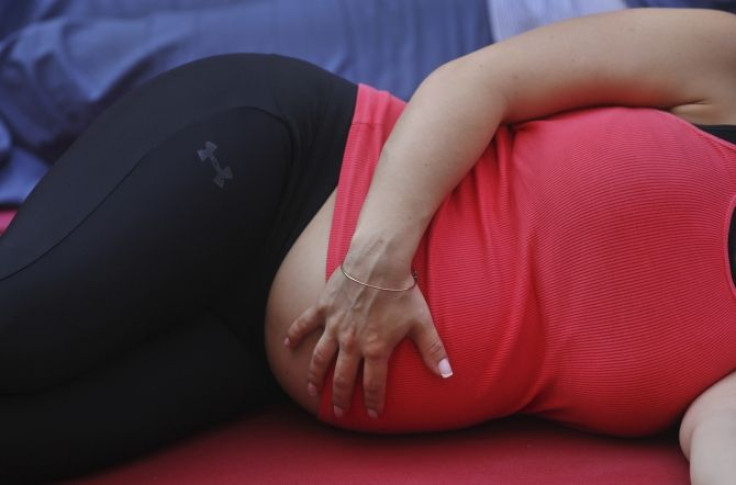Newborns of Mothers With Obstructive Sleep Apnea at Higher Risk for Breathing Problems

Pregnant women who are obese and don't get enough sleep at night have a higher risk of developing health complications for themselves and their babies in the future, a new study says.
According to researchers, babies born to mothers who suffer from obstructive sleep apnea during pregnancy have a higher risk of being admitted to the neonatal intensive care for breathing problems. For moms, disturbed sleep may increase the risk of high blood pressure and a condition called preeclampsia where the body loses protein through urine.
Obesity is known to be associated with various complications. The present study says that obstructive sleep apnea during pregnancy may be an independent cause of breathing problems in the babies. In obstructive sleep apnea, breathing is frequently paused during sleep. This is the most common form of sleep apnea.
"Our findings show that obstructive sleep apnea can contribute to poor outcomes for both obese mothers and their babies. Its role as a risk factor for adverse pregnancy outcomes independent of obesity should be examined more closely," said lead author Dr. Judette Louis, from the University of South Florida.
The study involved 175 obese women who were pregnant. These women were diagnosed with obstructive sleep apnea using a portable in-home device that monitored their sleep. Researchers found that women who had trouble breathing while sleeping had higher blood pressure, risk of preeclampsia and higher chances of giving birth via C-section.
Babies born to these mothers were more likely to be admitted in neonatal intensive care units than babies of women who had no breathing-related problems during sleep. Researchers say that the higher rates of neonatal care might be explained by the higher rates of C-section delivery for obese women.
Previous research has shown that obstructive sleep apnea during pregnancy is related to low birth weight of the baby. The prevalence of sleep apnea in pregnant women is not known, but some research studies have shown that in the U.S., approximately 5 percent of all healthy pregnant women have sleep apnea.
Mild cases of sleep apnea can be treated with lifestyle changes while moderate to severe ones require the use of a machine called C-PAP (continuous positive airway pressure). According to the researchers, a woman can reduce the chances of having pregnancy-related complications by losing weight before she conceives. Related studies have shown that by reducing weight before pregnancy, women can reduce some of the health complications in children that are associated with maternal obesity.



























